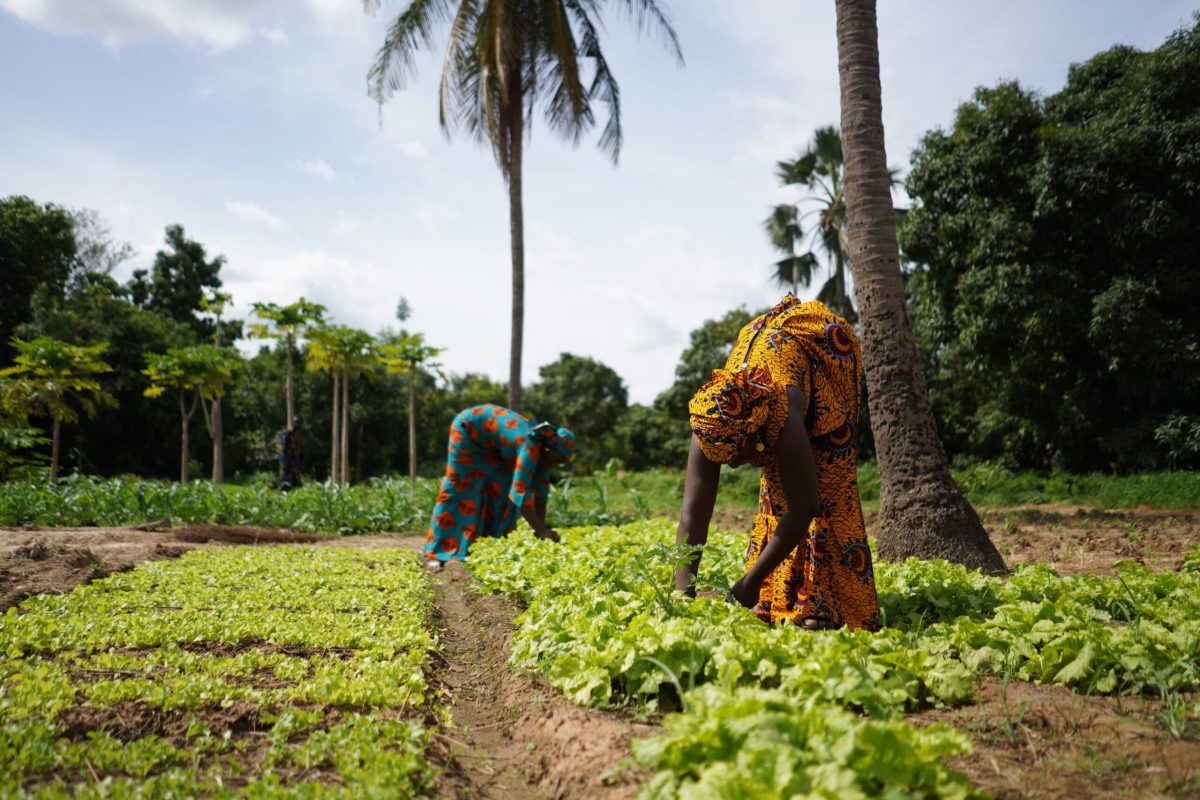In honor of this past World Food Day, October 16, we pay tribute and thank smallholder farmers everywhere that have worked tirelessly to provide nourishment to so many of us. Started by the Food and Agriculture Organization of the United Nations (FAO), World Food Day was created to spread awareness about the existing problems of obesity and malnutrition due to hunger.
This year marks FAO’s 75th anniversary with the still relevant theme “Grow, nourish, sustain. Together. Our actions are our future.” In these difficult times, it’s important to recognize the need to support our food heroes – from farmers to grocery store workers – who are making sure that food makes its way from “farm to fork,”. This World Food Day let us take the time to recognize the importance of food that many take for granted and many go without.
The Importance of Rural Communities
Often overlooked, small and medium sized farms in rural areas are critical to the health and stability of global food systems, producing roughly 57% of all food calories, with much of it feeding people living in major urban areas. It is estimated that 3 billion people currently live in rural areas in developing countries. Many depend on small family farms to not only grow the food they eat but also provide additional income by selling their excess produce. Unfortunately, even with their critical role in food supply chains, most of them are still overwhelmingly poor.
However, there is still promise in using agriculture to improve the future of rural communities everywhere. Studies have shown that economic growth in agriculture is two to four times more effective at reducing poverty and food insecurity than growth through other sectors. With approximately three quarters of the world’s poorest and most undernourished people living in rural areas in developing countries and 63% of them working in agriculture, there is huge potential to help rural communities, especially the most vulnerable groups – women, young people, and indigenous people. Government funding and resources put towards small-scale agriculture can help alleviate the stresses of food production, create jobs and enable rural communities to recover, especially in the face of COVID-19.
Community Highlight
Below are a few groups that are often overlooked in rural communities and are worth highlighting for their efforts and importance in food security and local communities.
Women: Women are major contributors to agriculture and rural economies, yet they continue to face challenges due to their gender. With less access to resources and services, they are also overburdened with domestic chores and caring tasks in addition to their agricultural contributions. Promoting gender equality is a key element to reduce rural poverty and improve food security.
Youth: Our world is home to 1.2 billion young people between the ages of 15 and 24. The youth population is also one of the fastest growing segments of poor nations. As these populations are the generations of the future, it is critical that we make sure young people have access to the resources, assets and services they need to be productive and have a positive impact on their communities.
Indigenous People: It is estimated that there are more than 476 million self-identified indigenous people in some 90 countries around the world. Indigenous people are a unique and critical population in conserving and effectively managing natural resources. Their generational wisdom and historical knowledge of local areas can help the world in adapting to climate change impacts and shifting to more sustainable methods.
The Effects of COVID-19
COVID-19 has revealed the fragility in our food systems and has shown us that we need to expand our food supply to increase food security everywhere. Measures that were implemented to control the spread of COVID-19 have impacted global food supply chains. The closure of markets, for example, prevented farmers from selling their produce, leaving many with the tough choice of burying or burning their crops.
The effects on global food security from the COVID-19 pandemic are shocking: the World Food Programme estimates that the number of people facing acute food security will nearly double to 265 million in 2020, an increase of 130 million from the 135 million in 2019. Rural communities are expected to be hit especially hard. Even before the pandemic, rural communities were already struggling with poverty, malnutrition, and lack of access to essential health and social services. The COVID-19 pandemic has only compounded these long-standing challenges.
Ways That You Can Make a Change
Recovery from the COVID-19 pandemic has presented us with a once-in-a-lifetime opportunity to rebuild our food systems to be more inclusive, resilient, and sustainable. Organizations like IFAD, FAO and this year’s Nobel Peace Prize winners, World Food Programme, work to address hunger and malnutrition in the most vulnerable areas by providing resources to these communities that are facing the worst effects of the COVID-19 pandemic.
While these organizations are working to address the challenges of the COVID-19 pandemic at the global scale, you, too, can help us build back better to have more resilient, green, and sustainable food systems. Building back better will take action at all levels and from all sectors of society. Below are some resources that can help you take action:
- Visit the IFAD website to learn more about their initiatives, which include climate & environment, youth, gender, indigenous communities, fishing and aquaculture & more.
- Learn more about this year’s World Food Day and the inspiring food heroes highlighted on this special day
- Choose a healthy diet, buy local and seasonal and follow other important food practices found on the FAO World Food Day Take Action Page.
